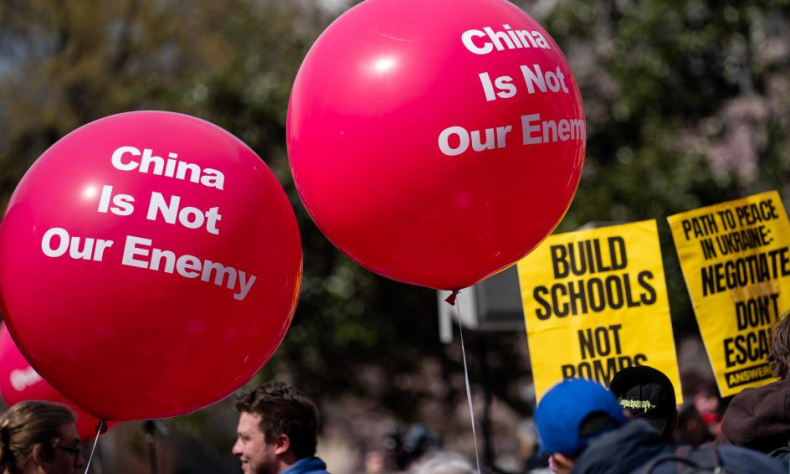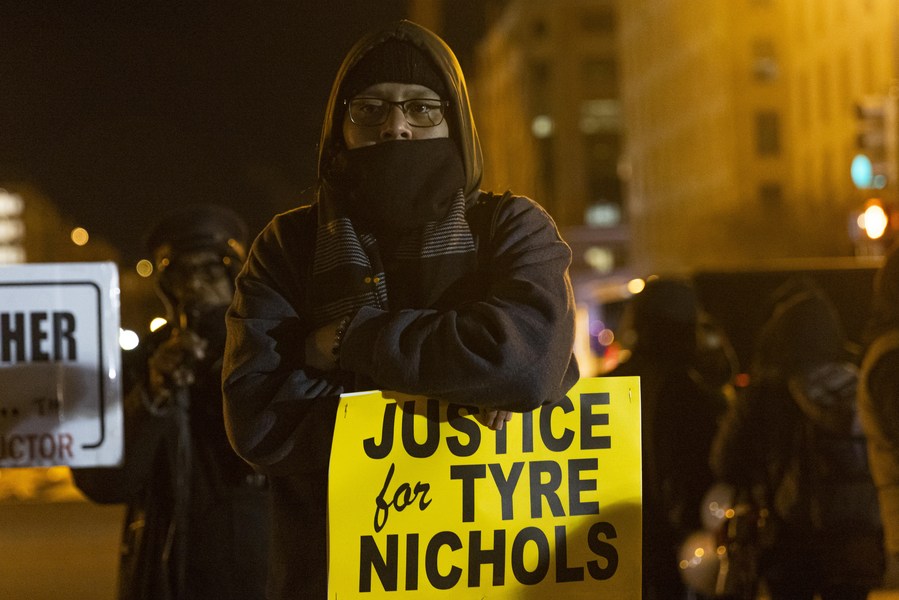Biden Offers No Anchor to a Sinking U.S. Hegemony

Instead of pointing the finger elsewhere, the U.S. must take a long look in the mirror and begin resolving the historic contradictions of a system that weaponizes democracy for the sake of hegemony and economic domination.
U.S. President Joe Biden hosted the second “Summit for Democracy” from March 28 to 30. In the lead-up to the event, which first took place virtually in December 2021, the U.S. Department of State had promoted the three-day meeting as “a multilateral collaboration” between the U.S. and cohosts spanning four continents—Zambia, the Republic of Korea, Costa Rica and the Netherlands. But nothing could be further from the truth. The gathering proved an exercise in unilateralism that sought to reestablish the American monopoly on democracy, and a failed one at that.
The troubles for the meeting had already begun well before it got underway. Mainstream U.S. media as well as many in the U.S. foreign policy establishment questioned Biden’s decision to host the event during such a delicate period for his country’s global reputation. Chair of the Council on Foreign Relations and former Department of State official Richard Hass referred to it as “a bad idea that won’t go away.” The Washington Post called it “inconsequential” while outlets such as The New Yorker retorted that U.S. democracy is currently in “a worse state than ever before.”
British daily business newspaper Financial Times alternatively labeled the gathering “awkward” in its approach and lamented how the U.S. lacked an effective strategy toward developing stable relations with the Global South.
An ‘exclusive’ event
The event itself was true to criticism. Rather than demonstrating the American ability to assert leadership on the world stage, Biden’s “Summit for Democracy” further exposed the decline of U.S. hegemony. The National Endowment for Democracy, an organization founded in the U.S. in 1983 and a proven agent of foreign interference, was a prominent participant during the event. The U.S. exploited the event to push its political interests in the Ukraine crisis by organizing a forum led by U.S. officials and Ukrainian President Volodymyr Zelensky.
However, the attending Global South countries played just a small role compared to U.S. and European officials who spoke for hours on the superiority of the U.S.-led model of democracy. China, Russia, most African nations and even NATO members Hungary and Türkiye were excluded from the event entirely. Several political experts noted that by declining to invite the latter two to the event, the Biden administration drew attention to underlying tensions in the Western alliance supporting Ukraine in the country’s ongoing conflict with Russia.

All in all, this is hardly behavior indicative of secure democratic leadership.
The summit was merely another example of U.S. hegemony masquerading as a democratic endeavor. Judging from the event, the term “democracy” is to be defined as “whatever policies and governance decisions serve U.S. interests.” What the country has often referred to as “authoritarian” states were excluded from the summit over alleged human rights violations and disrupting the international order. Biden’s “Summit for Democracy” basically turned reality upside down.
While China is called “authoritarian” and excluded from poorly conceived events like the most recent summit, U.S. foreign policy remains at the root of instability in every corner of the globe. U.S. sanctions have caused untold misery in Syria, Iran and more than 20 other nations. The U.S. has more than 800 military bases around the world, scattered across at least 80 countries, and is engaged in at least seven open military conflicts. In Ukraine, U.S. military assistance has escalated a conflict that has caused immense damage to the global economy and led to the deaths of hundreds of thousands of Ukrainian and Russian military personnel alone.
Wrecking ball
If democracy truly constitutes the “rule of the people,” then the U.S. governance system is far from it. No one in the U.S., or even the world, votes for or participates in the American policy of invading, sanctioning and destabilizing nations across the globe. U.S. “democracy” is a democracy for the few, a democracy of a tiny number of corporations and their political representatives. It is a democracy that serves the most destructive force on the planet: the U.S. hegemony.
The world has quickly come to realize that U.S. hegemony, cemented after the fall of the Soviet Union in December 1991, has taken a wrecking ball to the world order. Trust in U.S. leadership within the Global South is at an all-time low. As the U.S. struggles to offer anything but war and austerity, China has strengthened its global prestige by offering diplomacy and win-win cooperation in all fields. The U.S. was on the sidelines as China helped broker a peace agreement between Saudi Arabia and Iran in March. China’s leadership in multilateral institutions such as the Shanghai Cooperation Organization and BRICS, a group comprising the world’s five leading emerging economies—Brazil, Russia, India, China and South Africa, has been embraced by the Global South. This is evidenced by the expressed interest in and admission into these organizations of nations in Africa, Latin America and Asia over the past two years alone.

As the saying goes, those who live in glass houses should not throw stones. The recent “Summit for Democracy” offered no anchor to the sinking ship called U.S. hegemony. Rather, the U.S. used it to throw stones at China, Russia and other nations it deems a “threat” to its interests. The summit only served as a reminder that political leadership within the Biden administration has abdicated its responsibility to resolve the pressing problems at home.
And these problems are manifold. Since the onset of this year alone, U.S. rail systems have seen more than a dozen accidents like the one in East Palestine, Ohio, that have proven toxic to the surrounding populations. Infrastructure has been crumbling along with declining living standards and an exorbitant increase in the cost of living that have precipitated a decline in life expectancy by nearly three years since 2020. The U.S. remains a world leader in prison population, healthcare expenditure and murder by lethal firearms. Happiness in the U.S. is at an all-time low, as is trust in the government.
China has recently released a series of reports on the state of U.S. democracy and human rights that rightfully highlight these problems. These reports were not meant to antagonize the U.S. Rather, they point to humanity’s dire need for the U.S. to stop meddling in the affairs of other countries and focus on the crises that poor and working people experience within its own borders. Too many suffer from the resolvable crises of climate breakdown, militarism and extreme poverty due to U.S. foreign policy. Instead of pointing the finger elsewhere, the U.S. must take a long look in the mirror and begin resolving the historic contradictions of a system that weaponizes democracy for the sake of hegemony and economic domination.
The author is an independent journalist and political analyst for The Left Lens YouTube channel and coeditor of the Friends of Socialist China website.
 Facebook
Facebook
 Twitter
Twitter
 Linkedin
Linkedin
 Google +
Google +










